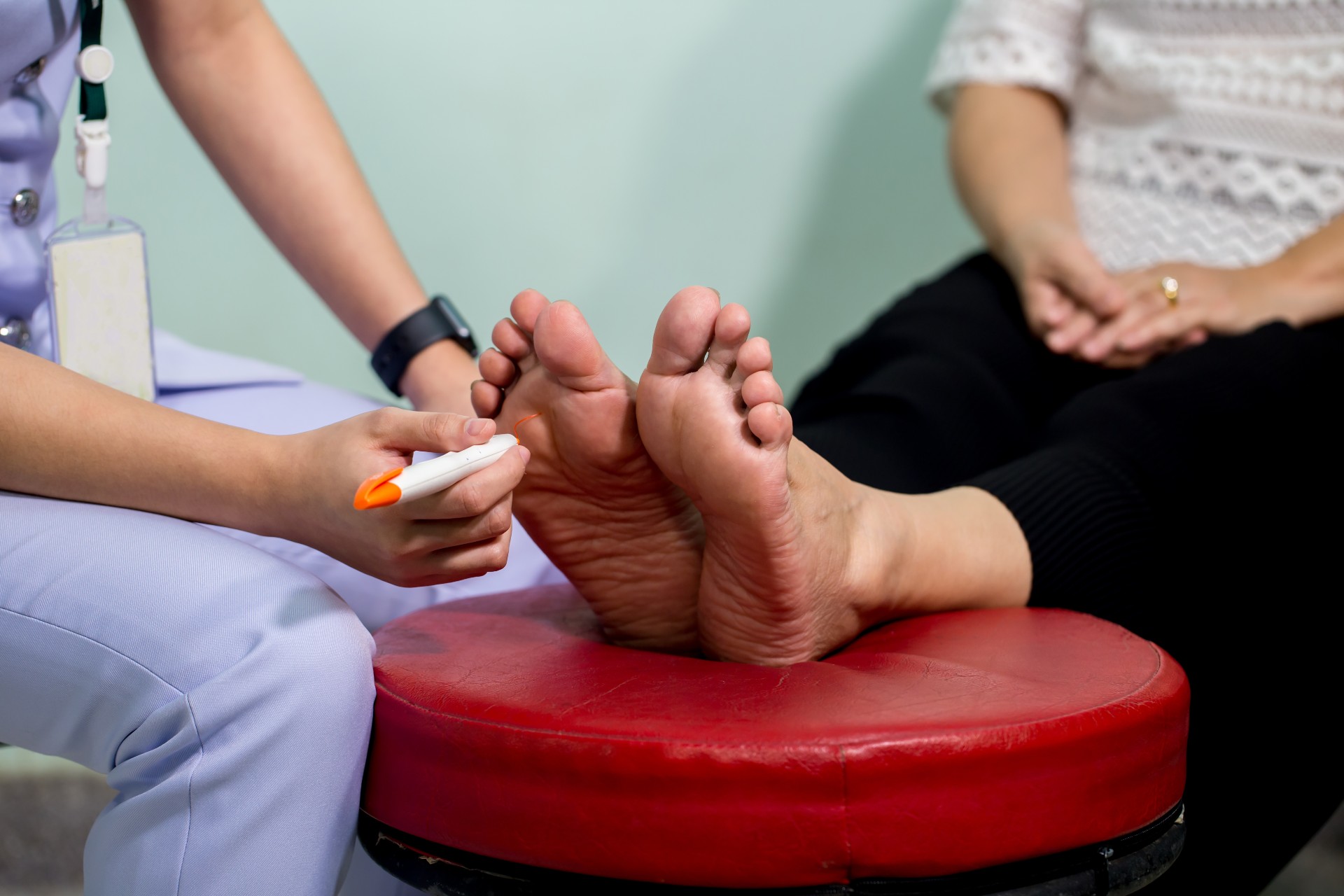Things to Look Out for as a Diabetic When it Comes to Your Feet
Diabetics must be especially careful when it comes to their feet, as even minor diabetic foot problems can lead to disastrous consequences. According to the CDC, nerve damage affects around half of all people with diabetes. But sometimes, knowing what you should be looking for can be tough.
In this article, we’ll outline some of the key things you need to look out for when it comes to your feet and provide guidance on when to come in to see our doctors.
Why is Diabetic Foot Care so Important?
Even small wounds and conditions can have serious long-term consequences for diabetics if left untreated. That’s because diabetes can cause damage to both the nerves and blood vessels, making it difficult for wounds to heal.
Diabetics are also more susceptible to infections. Poor circulation can make it difficult for wounds to heal, which can be a major problem for diabetics and diabetic foot care. That’s because even a small cut or scrape can quickly become infected, eventually leading to serious complications like ulcers, gangrene, and even amputation.

How Often Should I Inspect My Feet for Signs of a Problem?
Many people don’t think about their feet until there’s a problem. But if you have diabetes, it’s important to give your feet a daily check. That way, you can spot any problems early and take care of them before they get serious.
So, what should you look for? Start by taking off your shoes and socks. Look at your feet for any cuts, scrapes, redness, swelling, or blisters. Also, check between your toes for any redness or sores.
If you’re having trouble inspecting your feet, place a mirror on the floor that will reflect the bottom of your feet back at you. Or, if you have a caregiver, allow them to inspect your feet regularly for you.
Besides a visual inspection, explore your feet with your hands and notice any sudden changes or especially troublesome areas.
After a bath or shower is a great time to check your feet because they are clean and dry. If applying lotion, do not apply it between your toes or on top of a cut, blister, or anything that’s discolored.
Call our doctors immediately if you see anything that looks like a problem. Even if everything looks fine today, inspecting your feet daily is crucial for your health.
What are the Things I Should Look Out for?
Taking a regular look at your feet is a good way to catch small problems before they become bigger ones. Here are a few things to look out for:
Cuts, Scrapes, and Blisters
Inspect your feet daily for cuts, scrapes, blisters, or other wounds. If you see anything, wash the area with soap and water and apply an antibiotic ointment. Then, cover the wound with a bandage.
Swelling, Redness, and Sores
Examine your feet for any sign of swelling, redness, or sore spots. Use your hands to rate how tender your feet might be and recognize changes from day to day. If your feet are too dry, this can also cause issues, so use moisturizers when you can–careful to avoid between your toes and cuts and scrapes.
Toenails and Lesions
Check for any toenail problems, such as thickening, crumbling, or yellowing. Also, look for any new growths or lesions on the nails. Try to keep your toenails clean and trimmed to avoid collecting dirt and grime and to avoid snagging. If you are unable to perform regular maintenance, ask a family member or caregiver to assist you.
Numbness and Tingling
Inspect the soles of your feet for any foreign objects that may be stuck in them. If you find something, carefully remove it with a pair of tweezers and cover any wound it may have left. Make sure to wear socks or protective footwear and keep objects off your floors to avoid further damage.
By taking a few moments to examine your feet each day, you can help keep them healthy and free of problems. If you notice any of the above, and they worsen over the course of a few days, consult our doctors immediately.
When to see a Doctor
Diabetes can cause several problems with your feet, from minor issues like dry skin to more serious problems like nerve damage and infections. If you’re concerned about your feet, it’s important to see one of our doctors for an assessment.
In general, you should see our doctors if you have any open wounds on your feet, if you’re experiencing numbness or tingling in your feet, or if you’ve noticed any changes in the shape or color of your feet.
Doctors and caregivers can also provide you with specific preventative and care measures based on your health, mobility, and any underlying conditions you may have. So, maintaining regular communications and open dialogue with healthcare professionals is essential.
With managing diabetes comes lots of other areas to focus on as well, such as checking blood sugar levels, having a healthy diet, and being active. With everything else going on, your feet might be the last thing you think about, but preventing foot complications should always be a top priority.
Contact Us Today for More Help
We know that diabetic individuals have unique foot healthcare demands, which is why we’re here. We are foot and ankle specialists, and our doctors are trained to handle various foot issues due to diabetes.
If you’re suffering from any of the above-mentioned issues or any other concerns about your feet, make an appointment with us at Foot and Ankle Specialists of Central PA.

